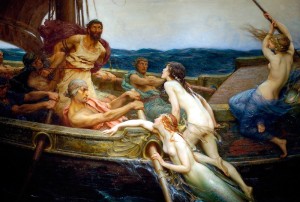
At the outset of this little diatribe, I think it necessary to get one fact straight. All mythologies are manufactured. Every myth, no matter what its age, was once new. To condemn new efforts in this area because the resulting works are not historical (translated “old” or “old enough”) can have the effect of stifling further creativity.
One might object that modern, manufactured mythology is not valid for the plain reason that people do not literally believe in it. But how much do we really know about what the members of ancient cultures actually believed? Perhaps significant numbers (even a majority) of them did not believe in the tales, either. We don’t really know. The Aenid by Virgil, for example, was a politicized re-telling of The Iliad and The Odyssey, but it is still considered a classic. As long as a new book is marketed and sold under the designation of fiction, it is reasonable to assume that the reader is intelligent enough to understand that the contents are not describing things that are literally real.

The criteria for judging new mythologies should be the quality of the writing and the possession of some degree of originality. That The Lord Of The Rings is sometimes criticized for being manufactured does not alter the fact that it is a resonant story that a good many intelligent and educated people consider to be good writing. As a starting point for his work, Tolkien (a scholar of Anglo-Saxon literature) borrowed elements from older lore, but this is not a problem. His telling is still original, and it reads well.

I understand that there are those who dislike mythology whether it is old or new, and they should not be required to defend their preferences. Neither should those of us who genuinely like this sort of thing. Individual taste is individual taste. My advice to those overly prone to analysis and criticism is therefore simple. Ignore the genre if you wish, but if you choose to read a story, start out by trying to enjoy it. Bad writing does not require vigilant exposure. It has a tendency to expose itself.
A lot of people don’t like the idea that mythology could be “created” as such. I think this is often because they fear that the idea of a man-made mythology could also apply to their own religion. Also it wouldn’t surprise me if Tolkien’s mythology develops a religious following in the millenia to come, as the Silmarillion is written in a style very similar to the Bible.
LikeLiked by 1 person
Ali, thank you for your comment. I have used it as a starting point for my next post on 4-20-15.
LikeLike